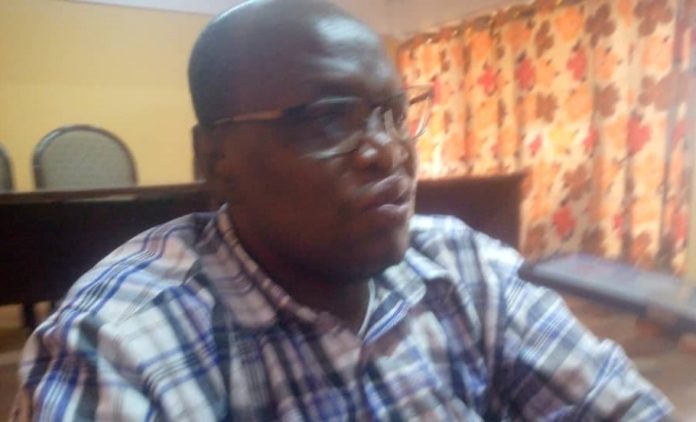Ahead of the launch of the Green Ghana Project on Friday June 10, 2022, government have been urged to incorporate Farmer Managed Natural Regeneration into the programme in a bid to restore especially, vast degraded land in the country.
The Executive Director of the Forum for Natural Regeneration, Sumaila Seidu Saaka made the appeal in an interview with Dreamz News on the sidelines of a Farmer Managed Natural Regeneration (FMNR) scaling up policy advocacy engagement with local government policy makers and implementers at the Bolgatanga Municipal Assembly on Tuesday June 7, 2022.
Though commending the government for the initiative to plant trees, Mr. Saaka is of the firm conviction that FMNR when incorporated will guarantee a more sustainable and community led approach to restoring degraded lands.
In 2005, Ghana was said to have had 35% of its land mass prone to desertification. Development watchers are worried that the situation has worsened over the period with the erratic rainfall pattern, increased floods and increased dry spells being evidence of deteriorating conditions due to desertification which is greatly fueled by the changing climate.
It is in this light that the Forum for Natural Regeneration in partnership with World Vision Ghana is calling for a scaling up and incorporation of Farmer Managed Natural Regeneration into the Green Ghana Project being championed by the Ministry of Lands and Natural Resources and the Forestry Commission
Farmer Managed Natural Regeneration (FMNR) is a low-cost, transformational and sustainable land restoration technique used to combat poverty and hunger, and increase the quality of life for farmers in developing countries and has proven more effective than conventional tree planting.
World Vision Ghana and its partners, the Forum for Natural Regeneration (FORNAR) with support from the European Union and other German funders have commenced the implementation of the Farmer Managed Natural Regeneration project in the Kassena Nankana West District of the Upper East Region.
The decision to move to the Kassena Nankana West District follows the successful implementation of a similar programme in the Talensi which was implemented over a 10-year period between July 2009 and June 2019.
The project has so far helped in restoring 750 hectares of degraded land in communities in the Talensi District, reached 1,200 farmers in 57 communities with 3,000 farm households benefiting from improved crop varieties and 1,500 households also receiving improved crop storage bags.
Other initiatives as part of the project also saw 1,200 persons trained as fire volunteers since bush burning remains a major concern, 1,200 community members trained as FMNR lead farmers and supported with logistics and the formation of 488 savings groups among other achievements.
It is on this score that Mr. Saaka remains optimistic that comprehensive and community led approach of FMNR makes it a viable approach such that when it is incorporate into the Green Ghana Project, it will guarantee the restoration of many areas to make the country green.
He further called for the harmonization of the country’s forestry and agricultural policies.
“FMNR is probably a cheaper way to regenerate degraded forest lands than tree planting. When you plant the trees, do we follow through to make sure that we grow the trees and that also takes a longer time but if you travel around, there are already shrubs, native shrubs that are already established by their root system so if you mobilize the community people and they continue to manage them, prune them and then you prevent animals and then fire then within a short period, we can be able to re-green a lot of our communal land instead of tree planting which is very expressive.
This year we’re talking about 12 million cedis and with that using the FMNR approach, we could re-green the whole of Ghana so I think FMNR should become part of our re-greening or our natural resource management strategy. And we also need to harmonize our forestry and agricultural policies, agro-forestry. In many cases, they are working as if they are individual fields. They work in silos, agric is doing something different and what forestry is doing is also different”. He observed.




